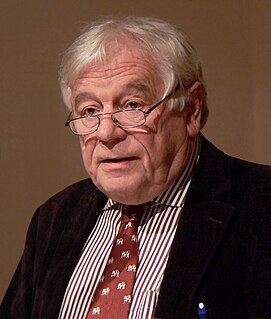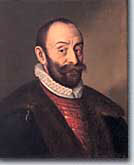Ralph-Johannes Lilie (30 December 1947, Hamburg) is a German Byzantinist.
Ralph-Johannes Lilie (30 December 1947, Hamburg) is a German Byzantinist.
He graduated from Munich University in 1975 with a dissertation entitled 'The Byzantine Reaction to the Arab Invasions – Studies on the Transformation of Government Structures in the Byzantine States in the 7th and 8th Century' and habilitated in 1982–83 at the Byzantinisch-Neugriechischen Seminar of the Free University of Berlin, where from 1984 to 2005 he was extraordinary professor. Since 1992 he has been working on the Prosopographie der mittelbyzantinischen Zeit (PmbZ) project at the Berlin-Brandenburg Academy of Sciences and Humanities. His wife is the medievalist Marie-Luise Favreau-Lilie.

Year 718 (DCCXVIII) was a common year starting on Saturday of the Julian calendar. The denomination 718 for this year has been used since the early medieval period, when the Anno Domini calendar era became the prevalent method in Europe for naming years.

Year 678 (DCLXXVIII) was a common year starting on Friday of the Julian calendar. The denomination 678 for this year has been used since the early medieval period, when the Anno Domini calendar era became the prevalent method in Europe for naming years.

Year 679 (DCLXXIX) was a common year starting on Saturday of the Julian calendar. The denomination 679 for this year has been used since the early medieval period, when the Anno Domini calendar era became the prevalent method in Europe for naming years.

Karl Krumbacher was a German scholar who was an expert on Byzantine Greek language, literature, history and culture. He was one of the principal founders of Byzantine Studies as an independent academic discipline in modern universities.
The Battle of Sebastopolis was fought at Sebastopolis in 692 CE between the Byzantine Empire and the Umayyad Caliphate under Abd al-Malik ibn Marwan. The battle ended the peace that had existed between the two powers since 680.

Robert Spaemann was a German Catholic philosopher. He is considered a member of the Ritter School.
Imanuel Geiss was a German historian.
Fritz Schachermeyr was an Austrian historian, professor at the University of Vienna from 1952 until retirement.
Otto Friedrich Bollnow was a German philosopher and teacher.
Ernst Forsthoff was a German scholar of constitutional law and a leading theorist of administrative law.

Wolfgang Benz is a German historian from Ellwangen. He was the director of the Center for Research on Antisemitism of the Technische Universität Berlin between 1990 and 2011.

Hans Fuggervon der Lilie, full name Hans, Freiherr Fugger, Herr zu Kirchheim, Glött, Mickhausen, Stettenfels und Schmiechen, was a German arts patron, businessman and politician of the Fugger family.
Gerhard Albert Ritter was a German historian.

The Battle of Kopidnadon or Kopidnados took place in September 788 between the armies of the Abbasid Caliphate and the Byzantine Empire. The Abbasid army launched an invasion of Byzantine Asia Minor, and was confronted by a Byzantine force at Kopidnadon. The resulting battle was an Abbasid victory. Among the Byzantine losses was a certain Diogenes, who is identified by some scholars with the probable original source for the literary hero Digenes Akritas.
Kesta Styppiotes or Stypeiotes was briefly the Domestic of the Schools of the Byzantine Empire in ca. 883.
Peter Alter is emeritus professor of modern and contemporary history at the University of Duisburg-Essen, Germany, and a specialist in nationalism and the twentieth century history of the United Kingdom. He is a former research fellow and deputy director of the German Historical Institute London.

Johannes Nobel was a German indologist and Buddhist scholar.
Egon Boshof is a German historian. From 1979 to 2002, he held the Chair for Medieval History at the University of Passau.
Franz Antoni Lipp was a German lawyer and politician who served as Deputy of Foreign Affairs of the Ernst Toller Government of the Bavarian Socialist Republic. During his brief government post, he was noted for his eccentric behavior, notably because of his diplomatic telegram to Vladimir Lenin and Pope Benedict XV mentioning the disappearance of the ministry's "key to the toilet" and his attempts to declare war on Switzerland.
Hans-Georg Beck FBA was a German scholar, specializing in Byzantine studies.